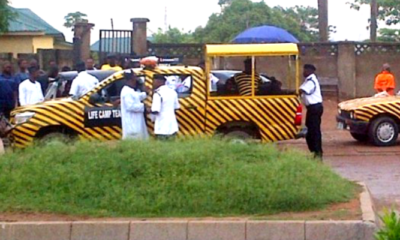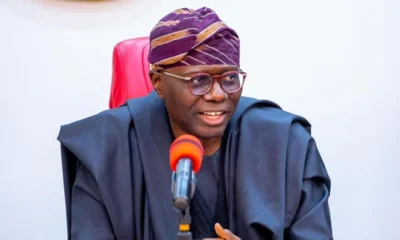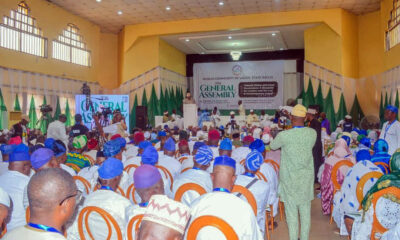metro
Fresh fuel scarcity may ground economy as it spreads to Lagos, P’Harcourt
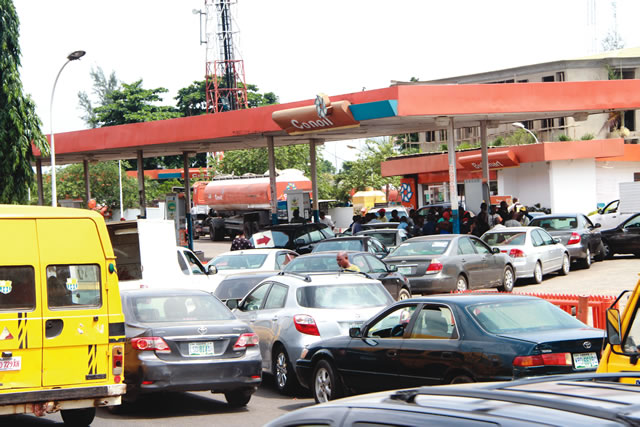
Long queues of motorists have surfaced at many filling stations in Lagos as fuel scarcity hits the commercial capital of Nigeria.
There are fears that the economy of the country may be badly affected as Abuja, the nation’s capital, and its environs have been experiencing the problem for some weeks, after heavy flooding especially in Kogi has prevented trucks from taking fuel to that part of the country.
In Lagos, some filling stations, mostly independent marketers, do not have fuel to sell to motorists and other consumers.
And those with stock have increased their prices, selling between N200 and N250 per litre, depending on location.
The National Operations Controller, Independent Petroleum Marketers Association of Nigeria, IPMAN, Mike Osatuyi, attributed the situation to unsteady supply in the past few days.
He told Vanguard that as a result of the unsteady supply, depots prices had risen to between N175 and N180 per litre in Lagos and its environs.
He said, “The situation has culminated in higher prices at the depots. Our members, who find it difficult to get the product, pay between N175 – N185 per litre. Consequently, we are compelled to sell at higher prices in order to cover cost.”
The Independent Petroleum Marketers Association of Nigeria (IPMAN) said the artificial scarcity of petrol in Lagos, Abuja, Port Harcourt and other states was caused by the ravaging flood in the country.
The Chairman of IPMAN in Rivers State, Mr Joseph Obele, said there was no scarcity of the product but transportation challenges caused by the flood.
He added this had triggered the scarcity of the product as many highways across the country had been overtaken by flood.
The Nigerian National Petroleum Company Limited has not spoken on the current fuel situation in Lagos.
But it recently urged consumers in Abuja, where fuel scarcity has persisted for weeks, not to panic as it was working to restore stable supply.
It stated, “The current queue situation in some parts of Abuja and its environs is as a result of delays in arrival of fuel trucks. This is happening as a result of heavy flooding that has submerged parts of the highway passing through Lokoja, Kogi State and also an incidence of a failed road section around Badegi-Agaie highway in Niger State.
“Consequently, vehicles, especially fuel tankers, are finding alternative roads to get to their intended destinations”.
metro
Kaduna Residents Storm Govt House, Demand Probe of El‑Rufai
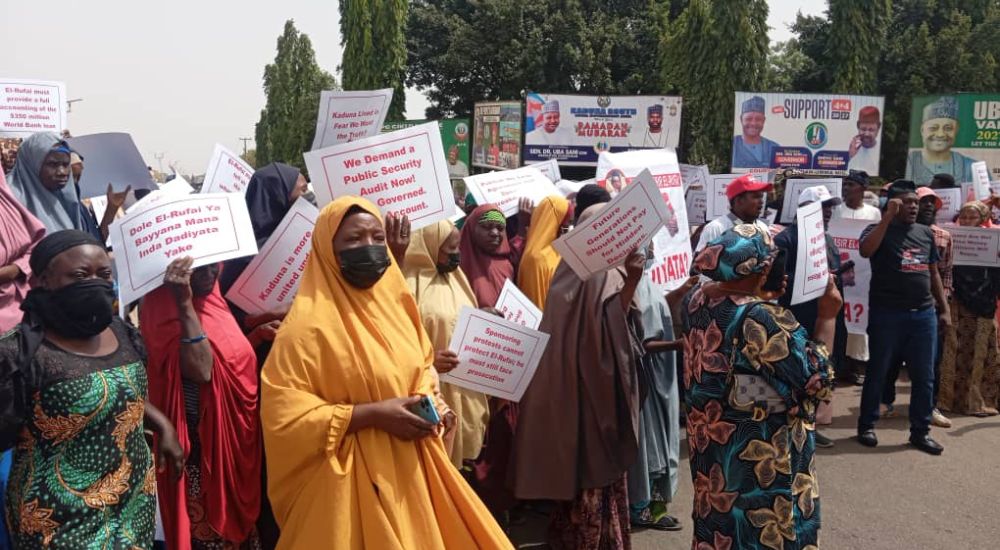
Kaduna Residents Storm Govt House, Demand Probe of El‑Rufai
Hundreds of Kaduna State residents on Thursday staged a peaceful protest at the Government House in Kaduna metropolis, demanding answers over the disappearance of lecturer Abubakar Idris, popularly known as Dadiyata, and calling for a public audit of former Governor Nasir El‑Rufai’s administration.
The protesters, composed of youths, women, and community members, gathered at the UTC roundabout before marching to the state’s seat of power, chanting solidarity slogans and carrying placards. Some of the messages read “We demand public scrutiny, audit now,” “Malam Nasir El‑Rufai, where is Dadiyata?” and “Publish loan agreement and spending breakdown now.” Other placards demanded justice, stating “Kaduna lived in fear, we want the truth,” and “Sponsoring protest cannot protect El‑Rufai; he must face prosecution.”
Dadiyata, a social media commentator and lecturer, was abducted from his Kaduna residence in 2019 by unknown gunmen and has not been seen since. His disappearance remains a controversial unresolved case, prompting calls for transparency and accountability from both the government and security agencies.
READ ALSO:
- Fatal Keffi Road Accident: Driver Avoiding FRSC Patrol Causes 6 Deaths
- Ex‑NNPC GM Jailed for 87 Months in $2.1m Bribery Case
- Osimhen Now Worth €150m Following Napoli Exit, Galatasaray VP Claims
Addressing journalists during the protest, protest leader Anas Yusuf emphasized that the demonstration was non-partisan, aimed solely at promoting justice and accountability. He highlighted insecurity during the previous administration, noting:
“Kaduna bled. Communities were attacked, Birnin Gwari faced isolation, banditry escalated, citizens were kidnapped, families buried loved ones, and fear became normal. Former Governor Nasir El‑Rufai must answer hard questions.”
Another protest leader, Comrade Joseph Chori, described Dadiyata’s disappearance as “an open wound” for Kaduna residents, saying:
“A family still waits. Kaduna still asks: what happened?”
The protesters also demanded an independent public security audit of the El‑Rufai administration and called for full disclosure of the $350 million World Bank loan obtained during his tenure, insisting the loan agreement and spending breakdown be made public.
“Loans are not free money. Public debt demands public accountability because citizens will repay that debt. They deserve transparency,” the group stated.
Former Governor El‑Rufai has denied involvement in Dadiyata’s disappearance, previously stating that the lecturer was a critic of another state government and not linked to his Kaduna administration.
While the protest remained largely peaceful, organizers stressed their action was intended to strengthen democracy and promote justice, not to incite division. They urged authorities to act transparently and ensure accountability for past misgovernance, while praising the relative calm under current Governor Uba Sani.
“We will not allow destabilisation to shield anyone from scrutiny. This is not revenge; this is justice and democracy. Kaduna deserves better, and Kaduna will demand it,” the protesters affirmed.
Kaduna Residents Storm Govt House, Demand Probe of El‑Rufai
metro
Fatal Keffi Road Accident: Driver Avoiding FRSC Patrol Causes 6 Deaths
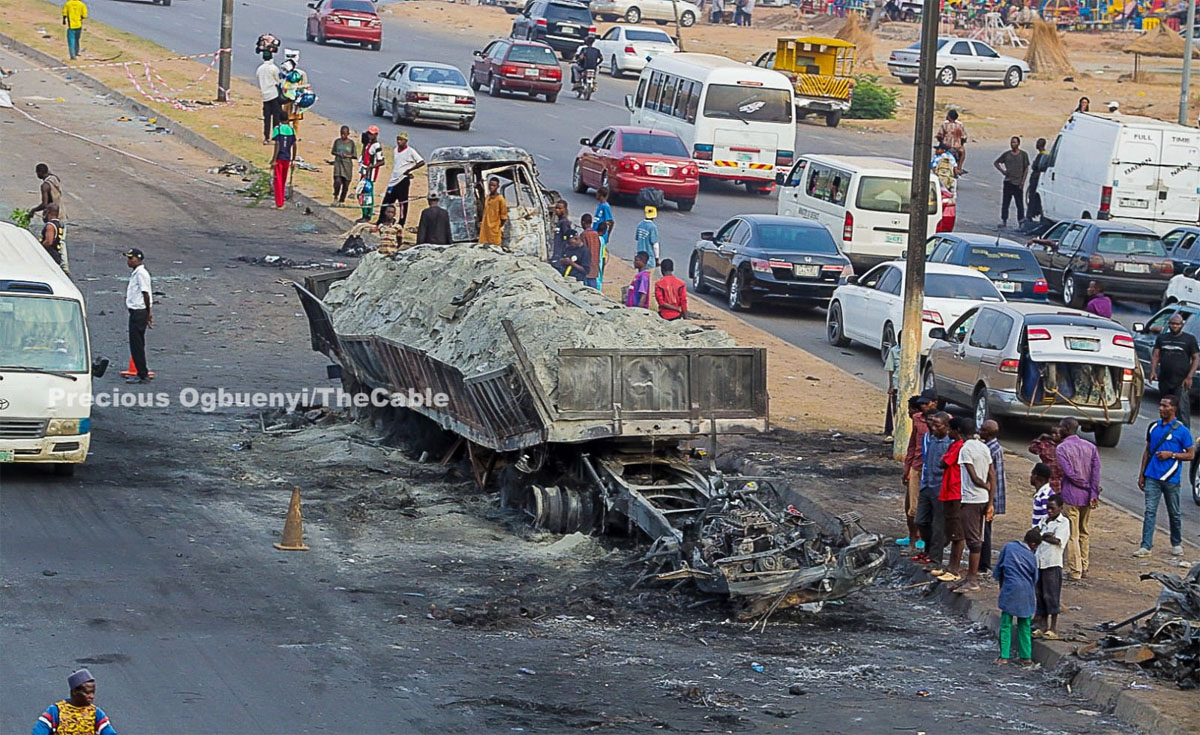
Fatal Keffi Road Accident: Driver Avoiding FRSC Patrol Causes 6 Deaths
The Federal Road Safety Corps (FRSC) in Nasarawa State has confirmed a fatal accident on the Keffi‑Akwanga expressway that claimed the lives of six passengers and left three others injured.
According to FRSC Sector Commander Yahaya Sabo‑Adiku, the crash occurred around 10:20 a.m. on Thursday when a Toyota Sienna space bus attempted to evade inspection by FRSC officials. Instead of complying with the patrol team’s request to stop, the driver sped off, lost control, and collided with another vehicle, resulting in the deadly crash.
READ ALSO:
- Ex‑NNPC GM Jailed for 87 Months in $2.1m Bribery Case
- Osimhen Now Worth €150m Following Napoli Exit, Galatasaray VP Claims
- BREAKING: Senate Issues Arrest Warrant for CAC Registrar General
“The accident was caused by the recklessness of one of the drivers who refused to stop for our patrol team. In trying to avoid arrest, he crashed into another vehicle,” Mr. Sabo‑Adiku stated.
The FRSC used the incident to remind motorists that safety officials are partners in road safety, not adversaries. The Corps urged drivers to cooperate with inspections to prevent similar road accidents that often result from reckless driving and traffic violations.
The FRSC continues to emphasize strict adherence to road safety rules, warning that non-compliance during patrols can lead to catastrophic accidents. Drivers are encouraged to view FRSC personnel as allies in ensuring highway safety.
Fatal Keffi Road Accident: Driver Avoiding FRSC Patrol Causes 6 Deaths
metro
INEC’s New BVAS Update Will Automatically Reject Mismatched Polling Unit Results
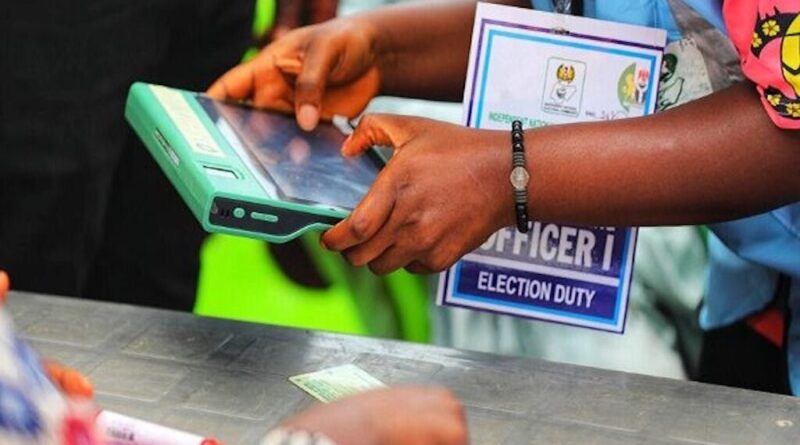
INEC’s New BVAS Update Will Automatically Reject Mismatched Polling Unit Results
The Independent National Electoral Commission (INEC) has clarified that its latest software update for the Bimodal Voter Accreditation System (BVAS) will automatically detect and reject mismatched figures between what is entered on the device and what appears on physical result sheets at polling units, a move aimed at strengthening the integrity of elections in Nigeria.
INEC’s Deputy Director of Information and Publicity, Wilfred Ifogah, explained the enhancement on Sunrise Daily on Channels Television on Thursday, saying the updated BVAS can now read and cross‑check figures on official result sheets against the data entered by presiding officers before results are formally tabulated on Form EC8A.
According to Ifogah, after votes are counted and aggregated at the polling unit, the presiding officer inputs the figures into the BVAS device. The tool then compares this input against the numbers on the scanned result sheet. If the figures do not match, the BVAS will reject the entry and block the upload, ensuring that only consistent and verified results are transmitted into the electoral database.
“If the figures do not correspond with what is recorded, it will not pick it up,” Ifogah said, adding that this enhancement is a critical measure to prevent manipulation, clerical errors, and inflated results at the polling unit level before collation begins.
READ ALSO:
- Ex‑NNPC GM Jailed for 87 Months in $2.1m Bribery Case
- Osimhen Now Worth €150m Following Napoli Exit, Galatasaray VP Claims
- BREAKING: Senate Issues Arrest Warrant for CAC Registrar General
BVAS Mock Trials and Readiness Ahead of Elections
INEC also disclosed that the commission conducted mock trials of the new BVAS update in 289 polling units across the Federal Capital Territory (FCT) prior to the recent Area Council elections. The mock deployment was designed to stress‑test the validation feature, identify challenges, and ensure smooth functionality during live elections.
Officials say the trial showed that the enhanced BVAS technology can effectively identify discrepancies and reduce the likelihood of incorrect result uploads — an issue that has fueled suspicion and court challenges in past elections.
The upgrade forms part of INEC’s broader push to improve transparency, accuracy and trust in Nigeria’s electoral process. INEC’s BVAS system is already equipped with internal safeguards that prevent over‑voting (where total votes exceed the number of accredited voters) and flag anomalies during accreditation and result capture. The new update goes further by validating data between paper result sheets and electronic entries before results are accepted into the system.
INEC’s Rationale and Public Assurance
INEC has faced recurring concerns from political parties, observers, and civil society over result discrepancies between physical result sheets at polling units and what is later collated at state and national levels. In response, the commission has increasingly emphasised its commitment to deploying technology to promote credible elections.
Ifogah stressed that the BVAS enhancement does not replace human judgment but acts as a digital check to ensure what is entered electronically aligns with what has been physically recorded by election officials. He said the innovation provides an additional layer of accountability, helping to reduce opportunities for manipulation at the earliest stage of result transmission.
INEC has also promised continued training for presiding officers and election officials on the new BVAS functionalities to ensure they are comfortable with the processes before future nationwide elections, including the 2027 general elections.
INEC’s New BVAS Update Will Automatically Reject Mismatched Polling Unit Results
-

 Entertainment2 days ago
Entertainment2 days agoNollywood Actor Okemesi Confirmed Dead After Brief Illness
-

 News3 days ago
News3 days agoBREAKING: IGP Kayode Egbetokun Steps Down as Tinubu Names Tunji Disu as New Police Chief
-

 metro1 day ago
metro1 day agoFrank Mba, Senior DIGs to Exit Police Service After Disu’s Appointment
-
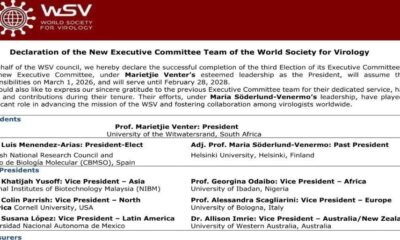
 metro1 day ago
metro1 day agoAfrican Virologists Elected to Lead World Society for Virology
-

 News1 day ago
News1 day agoBREAKING: Tinubu Decorates Tunji Disu as Acting Inspector‑General of Police
-

 News3 days ago
News3 days agoMother of Three Dies by Suicide After Fiance’s Family Rejects Marriage in Ijebu-Ode
-

 metro1 day ago
metro1 day agoAbroad-Based Nigerian Woman Kneels with Children in Emotional Tribute to Husband (VIDEO)
-

 News3 days ago
News3 days agoU.S. Congress Submits Report to Trump on Alleged Christian Persecution in Nigeria



